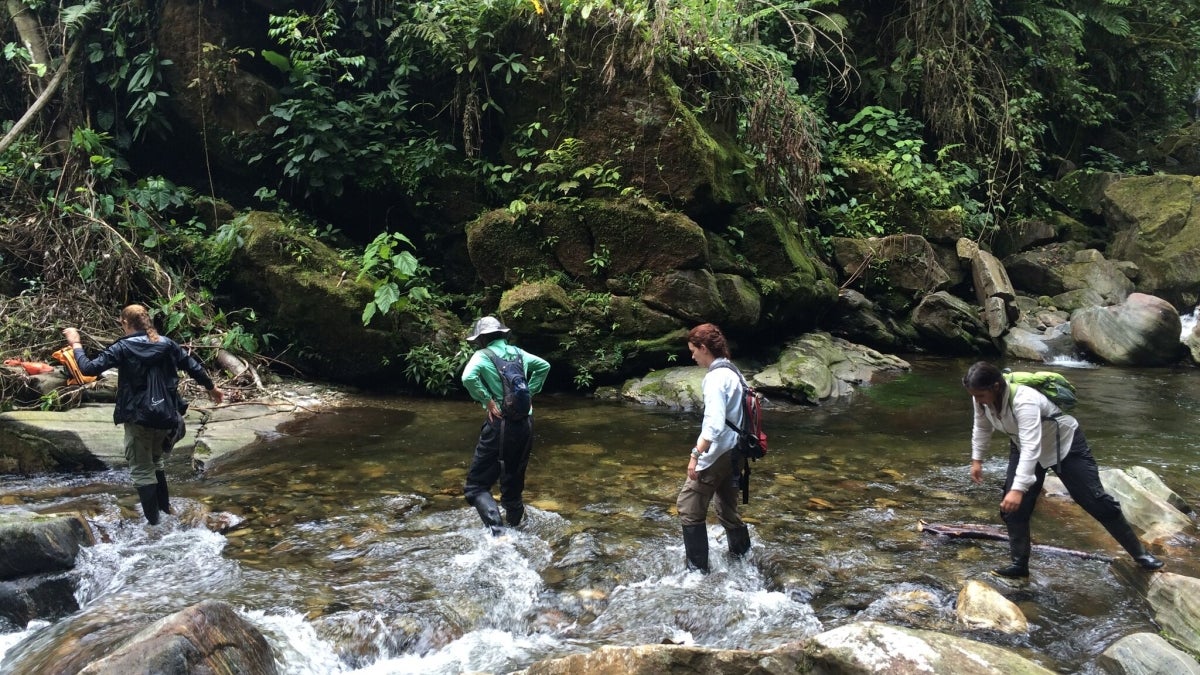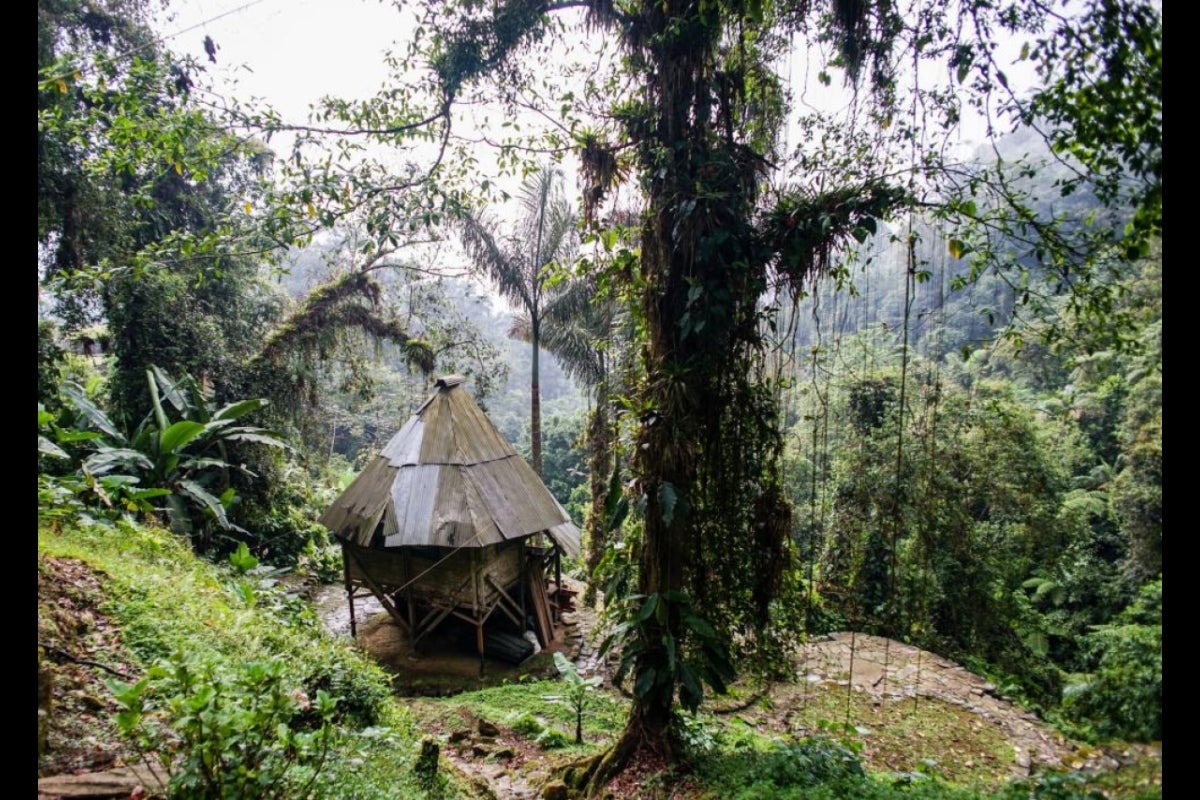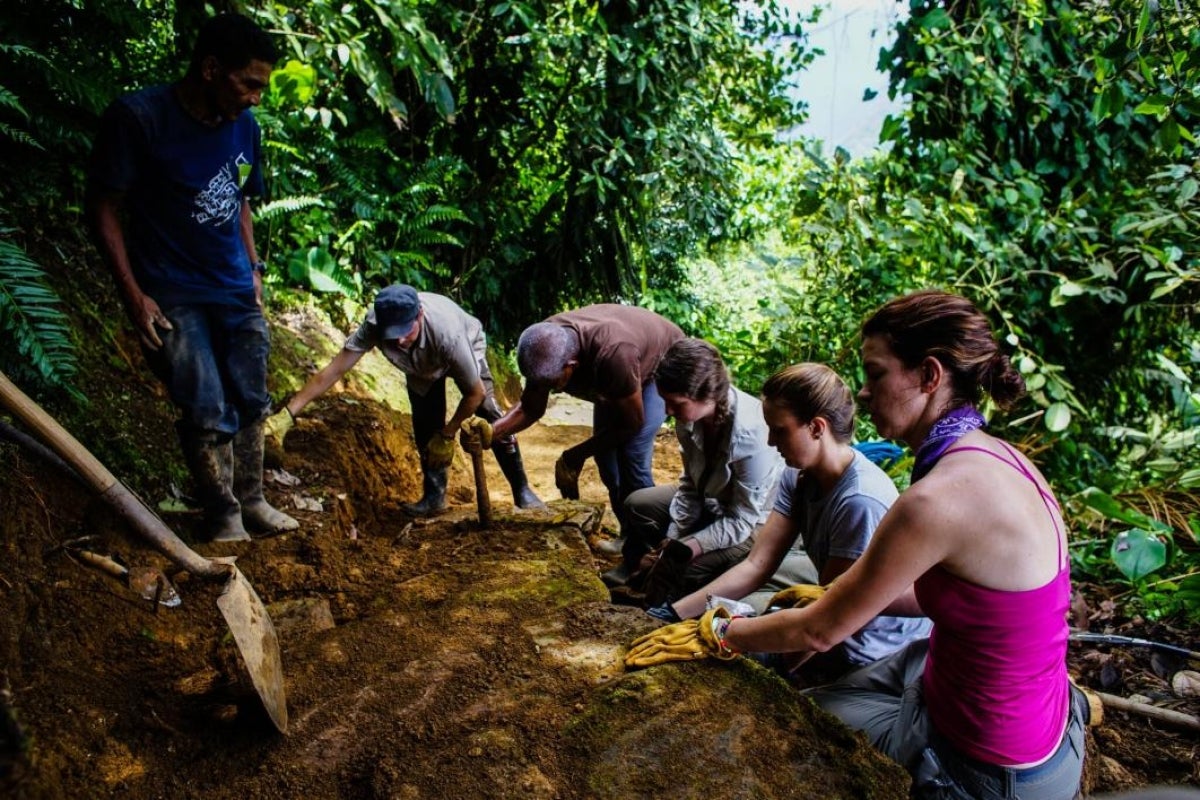Imagine you’re on a 28-mile journey that takes you across icy rivers and up steep jungle trails. After a grueling two days, you and your research team catch your first glimpse of the mountaintop archaeological site Ciudad Perdida, the “Lost City.”
It may sound like the opening scene of a summer blockbuster, but it was a recent reality for one mother of three, military spouse and Arizona State University online student.
Kristin Keckler-Alexander spent last summer at a field school in Colombia. Although the trek to the site itself was long, her journey really began several years before, when she was working toward an associate’s degree in history.
During that time, a “crazy-amazing professor” made anthropology come alive for her, she said, and got her interested in the connections between history and archaeology.
At an adviser’s recommendation, she later transferred to ASU Online and is now in the process of earning an undergraduate degree in anthropology, a minor in global health and a 4+1 master’s degree in history through the School of Human Evolution and Social Change and the School of Historical, Philosophical and Religious Studies.
“ASU Online gave me — a military spouse with three children who doesn’t live anywhere for very long — the opportunity to pursue my degrees, and that’s not something I would have at a brick-and-mortar institution,” she said.
“A lot of people seem to think that getting an online education is super easy,” she added, “but this learning style comes with its own set of challenges.”
Besides self-motivation, organization and an openness to unique communication workarounds with professors, online students also require a willingness to seek out their own extracurricular experiences.
"You dive into something, and you find out new information which leads you to new, bigger questions. And that’s part of the fun of it."
— Kristin Keckler-Alexander
Not wanting to miss out on the grit and real-world adventure of archaeological research, Keckler-Alexander found a program that allowed students to work in the field — in this case, at Ciudad Perdida.
Located high in the Sierra Nevada on the north coast of Colombia, the sprawling, terraced site was built by the Tairona people around AD 800.
“Getting to the site is pretty intense, but you fall in love with it as soon as you’re there,” she said. “It was definitely one of those life-changing experiences.”
Keckler-Alexander and the team with her camped on the site for a month. During that time, tasks such as historic reconstruction, archaeological survey, excavation and topographic mapping cemented a passion for fieldwork and taught her that each discovery only leads to more curiosity.
“You dive into something, and you find out new information which leads you to new, bigger questions,” she said. “And that’s part of the fun of it.”
This summer, in addition to continuing her online studies, Keckler-Alexander is taking advantage of several other opportunities to work in her field, including an ongoing project with the Society for American Archaeology to advise the Boy Scouts on the archaeology merit badge. She’ll also be heading to the Kansas State Historical Society field school with one of her sons, and she is anticipating the publication of a scholarly paper she wrote as a capstone project for her history degree.
The paper describes a little-known, WWI-era women’s civic organization that nonetheless had a big impact in the Midwest. Members of the Military Sisterhood of America provided financial charity, negotiated discounts for goods sold to soldiers, and even organized lawyers in Kansas and other Midwestern states to offer free legal services to military families.
“I became very passionate about making sure that people knew who these remarkable women were,” Keckler-Alexander said. “In my opinion, they were the precursor to a lot of the standard Army community service activities that we have today.”
Once she completes her master’s degree, Keckler-Alexander plans to apply to an archaeology doctoral program, though she may take some time off beforehand to work in the field. Her hope is to someday return to the sites in Colombia and bring her daughter with her, so that she too can be inspired by all the female scientists there.
“My daughter is very much in that age where she’s starting to think about what she wants to be when she grows up,” Keckler-Alexander said. “If that means she wants to be a shovel bum like her mom, then she can be a shovel bum. There really are no limits.”
Top photo: Kristin Keckler-Alexander (center-right) hikes across a river in Colombia with her research team. Photo courtesy of Kristin Keckler-Alexander
More Arts, humanities and education

Grand Canyon National Park superintendent visits ASU, shares about efforts to welcome Indigenous voices back into the park
There are 11 tribes who have historic connections to the land and resources in the Grand Canyon National Park. Sadly, when the park was created, many were forced from those lands, sometimes at…
ASU film professor part of 'Cyberpunk' exhibit at Academy Museum in LA
Arizona State University filmmaker Alex Rivera sees cyberpunk as a perfect vehicle to represent the Latino experience.Cyberpunk is a subgenre of science fiction that explores the intersection of…

Honoring innovative practices, impact in the field of American Indian studies
American Indian Studies at Arizona State University will host a panel event to celebrate the release of “From the Skin,” a collection over three years in the making centering stories, theories and…





